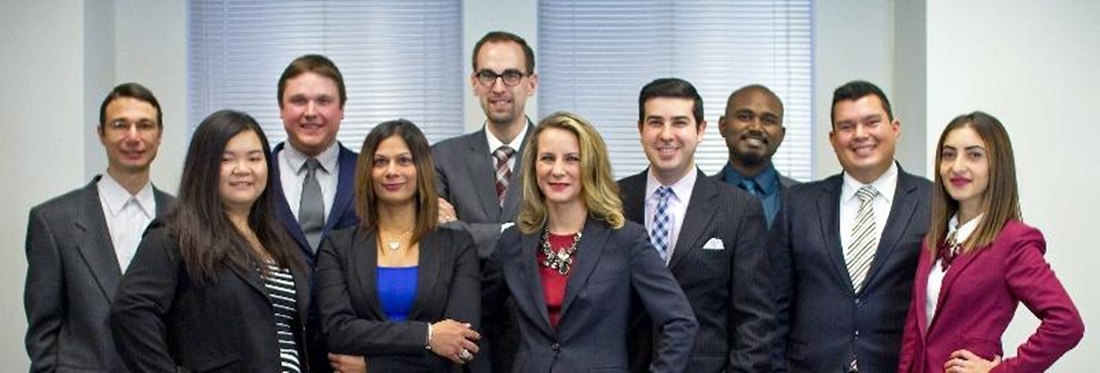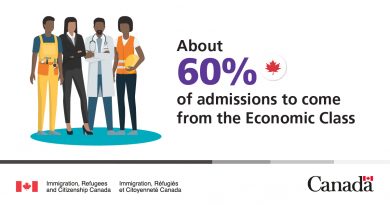Learning moments – Bar to sponsorship based on R130(3) and the ability to overcome this bar on H&C grounds
June 16, 2021
Hello, fellow practitioners! Today’s column deals with the bar to sponsorship found in subsection 130(3) of the
Question:
My question relates to spousal sponsorship and the eligibility to sponsor. The five-year sponsorship bar found in R130(3) applies to my client.
Is there a chance to overcome this before the 5 year bar ends? For instance, by using humanitarian and compassionate arguments? We have police evidence proving the previous relationship ended because of an abusive spouse, etc….
Answer:
Subsection 25(1) of the Immigration and Refugee Protection Act (“IRPA”) states:
25 (1) Subject to subsection (1.2), the Minister must, on request of a foreign national in Canada who applies for permanent resident status and who is inadmissible — other than under section 34, 35 or 37 — or who does not meet the requirements of this Act, and may, on request of a foreign national outside Canada — other than a foreign national who is inadmissible under section 34, 35 or 37 — who applies for a permanent resident visa, examine the circumstances concerning the foreign national and may grant the foreign national permanent resident status or an exemption from any applicable criteria or obligations of this Act if the Minister is of the opinion that it is justified by humanitarian and compassionate considerations relating to the foreign national, taking into account the best interests of a child directly affected.
As you can see, the provision is quite broad. It can be used to obtain an exemption from most of the criteria found in the IRPA and its regulations. This includes the requirement to have a sponsor that complies with subsection 130(3) of the IRPR, which states:
(3) A sponsor who became a permanent resident or a Canadian citizen after being sponsored as a spouse, common-law partner or conjugal partner under subsection 13(1) of the Act may not sponsor a foreign national referred to in subsection (1) as a spouse, common-law partner or conjugal partner, unless the sponsor has been a permanent resident, or a Canadian citizen, or a combination of the two, for a period of at least five years immediately preceding the day on which a sponsorship application referred to in paragraph (1)(c) is filed by the sponsor in respect of the foreign national.
There are two things that an applicant or their representative must do if they want to seek relief on humanitarian and compassionate (“H&C”) grounds.
The first is to indicate in Part 1, Q.1 of the IMM 1344 that they want to proceed with the application if the sponsor is found to be ineligible.
The second is to expressly request an exemption from this ineligibility provision on H&C grounds under s. 25 of the IRPA.
Failing to do either of these two things could lead to a pro forma refusal without any H&C consideration. If both of these things are done, then the application should be sent to a local IRCC office (likely Humanitarian Migration Vancouver) for an H&C assessment.
Interestingly, a recent case at the Federal Court dealt with this very issue. I have excerpted some of the more relevant paragraphs from the decision below:
73. The language used in subs. 25(1) provides the Minister with discretion to grant “an exemption from any applicable criteria or obligations of this Act” on H&C grounds [emphasis added]. In their ordinary sense, these words give a very wide discretion to grant H&C relief that exempts an applicant from criteria or obligations in the IRPA. There is nothing in the language or purposes of subs. 25(1), the language of the relevant provisions in the IRPR, or in the decided cases under subs. 25(1) that, as a matter of law, precludes an applicant from seeking H&C relief owing to a sponsor’s non-compliance with the requirements of IRPR subs. 130(3). An interpretation of ss. 124 and 130 of the IRPR and the publications that formed the basis of the respondent’s position on this application do not lead to a different view in law.
74. To be clear, however, I do not conclude that a successful H&C application under IRPA subs. 25(1) would grant an exemption from IRPR subs. 130(3) to a sponsor. An H&C application under subs. 25(1) is made by the applicant, not by the sponsor. If an H&C application is successful, the sponsor is not exempted from the requirements of the IRPA. The applicant foreign national is granted relief from the strict requirements of the IRPA or the IRPR on H&C grounds.
75. Accordingly, the wording of applicant’s submission — that he applied for permanent residence as a member of the SCLPC class and requested that his sponsor be exempted from the ineligibility requirement in IRPR subs. 130(3) on H&C grounds — is faulty. The Ministerial relief under subs. 25(1) is granted to the foreign national who applies, not to the sponsor.
76. In my view, however, a proper interpretation of subs. 25(1) does enable the applicant in this case to seek H&C relief based on the fact that his wife is technically unable to sponsor him due to IRPR subs. 130(3).
[…]
84. […] As I have concluded that an exemption from IRPR subs. 130(3) may be considered as a matter of law on H&C grounds under subs. 25(1) of the IRPA, the question becomes whether the officer’s decision dated September 26, 2019 was unreasonable due to that error.[1]
I would encourage readers to read the case in its entirety.
Assessing the client’s chances of success is not possible without more facts. I would not rely only on the family separation aspects of the case. Instead, I would canvass all H&C factors, as if I were preparing a full application for permanent residence on H&C grounds. In addition, any evidence that the sponsor’s first marriage was not a marriage of convenience (e.g. the abovementioned police report) will be relevant to the H&C determination.
The rationale for R130(3) was to create a disincentive for a sponsored spouse or partner to use a relationship of convenience as a means of circumventing Canada’s immigration laws, by abandoning their sponsor soon after arriving in the country and then seeking to sponsor a new spouse or partner.[2] If you can demonstrate that this was not the case for your client, then an officer may be more inclined to grant the exemption.
[1] Khandaker v Canada (Minister of Citizenship and Immigration), 2020 FC 985, [2020] ACF no 1029.
[2] Ibid at para 26.





